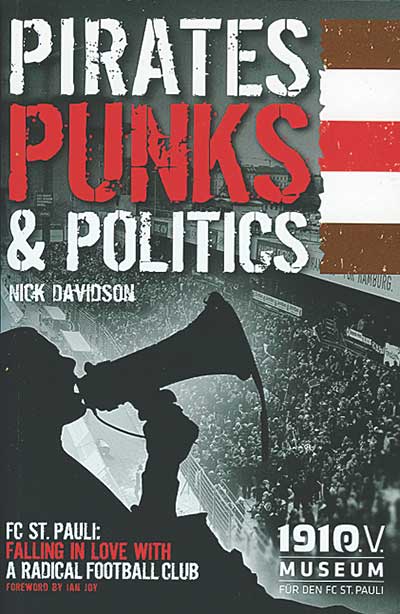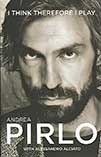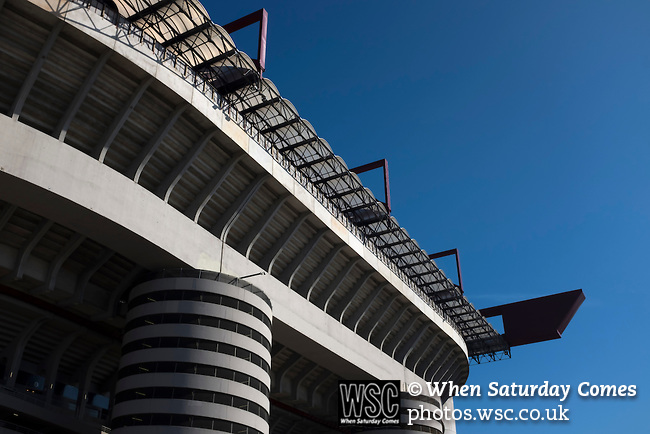Search: 'ultras'
Stories
Some blame English fans and French police but others call for hooligan clampdown
16 June ~ Whatever conclusions can be drawn from the chaos so far at Euro 2016, one thing is for sure – fans in Russia have been picking over the events in great detail. At some point in the last week everyone has pointed the finger at everyone else. Fratria, the Spartak Moscow ultras group, were one of many claiming the English fans started the trouble by provoking the Russians – Fratria claim they only fought with those English fans that wanted to.
 FC St Pauli: Falling in
love with a radical football club
FC St Pauli: Falling in
love with a radical football club
by Nick Davidson
Sportsbooks, £8.99
Reviewed by John Van Laer
From WSC 331 September 2014
It is often held to be one of the unwritten rules governing the life of a football fan that your allegiance, once chosen, remains unchanged. However many now feel priced out of what used to be an affordable form of popular entertainment, while any sort of supporter activism is seen by the clubs as a threat to the sanitised matchday experience. Only very few such people, however, have taken as radical a course of action as Nick Davidson, the author of the first English-language book about FC St Pauli. Once a season-ticket holder at Watford, he drifted away from Vicarage Road, attempting to rekindle the footballing flame by getting involved at his local non-League club. Sadly, the petty politics that blight local football proved equally unappealing and a lifelong interest in the game appeared to be at an end. However, chancing upon an article about St Pauli and deciding to visit the Millerntor stadium for a match in 2007 proved to be a turning point – the essence of this book is about a rediscovered love for football, coupled with the enjoyment of sharing the experience with thousands of like-minded individuals.
What could be described as just a German second division team that happen to be based in the red-light district of Hamburg in fact embodies a political viewpoint and an attitude to football’s place in society that has all but disappeared from the game in England. Over the last 30 years or so, the fan groups from St Pauli have become the most prominently left-wing supporters in German football. The politicisation of football at this working-class club started almost by chance but over time the groups such as Ultras Sankt Pauli have become an important counterpoint to the right-wing influence within some supporters’ groups at clubs such as Rostock, Dortmund and others. Of course, that is not to say that there are no other left-wing fans’ movements in the German game, but those connected with St Pauli are easily the most high-profile and active within the professional game.
Davidson tells the stories of his visits to St Pauli games across Germany in a style that betrays the increasingly partisan nature of his relationship to the club and its fans, while realising that both have their faults. These travelogues are intertwined with information about the history of the club and how the support has developed over the years. As a club St Pauli are not immune to the financial pressures of modern football, and certainly make capital from the iconic Totenkopf (skull and crossbones) emblem, but it is one of the few places where supporters still have effective influence over decisions affecting the future of their club, and are not afraid to voice their opinions. Many fans (and some players) are also actively engaged in political and social causes, both within the local St Pauli district and further afield.
It is hard not to share Davidson’s obvious enthusiasm for his team and the culture that they continue to embody, which he is actively supporting by donating all royalties from this book to the St Pauli Museum project.
 by Andrea Pirlo with Alessandro Alciato
by Andrea Pirlo with Alessandro Alciato
BackPage Press, £9.99
Reviewed by Joyce Woolridge
From WSC 329 July 2014
Reading this autobiography of a playmaker nicknamed “Mozart” is like going to the opera: some bloke comes on and sings very loudly in Italian at you for a couple of hours, it’s all very dramatic and enjoyable, but you don’t always know quite what’s going on. In no discernible order, its voluble and intelligent subject, who “has an opinion about everything and I’m not ashamed to express it”, launches into an erratic, extended and idiosyncratic monologue. There are even (mostly much needed) footnotes to explain some of the passing references, although glossing ultras as “the self-styled, most passionate, vocal and committed supporters” was probably unnecessary.
Many of Andrea Pirlo’s lines do sound as if they could have come from, say, Don Giovanni. When his ten years with AC Milan end with the gift of a pen (how many domestic footballers are presented with something to write with when shown the door?) he declares: “Still, I raised a smile because I know how to laugh, long and loud.” (Cue ear-splitting Rabelaisian guffaws.) Various club presidents and managers memorably strut the stage. Marcello Lippi theatrically denounces the Italian dressing room: “Bunch of bastards, bunch of spies”; Antonio Conte hurls water bottles at Juve bellowing: “It’s time we stopped being crap.”
The reader is never in doubt that the text was originally in Italian, making it refreshingly different from the prosaic platitudes of the standard British footballer’s life. True, the highly charged style occasionally strays into Swiss Toni territory: “When you’re in love, it’s time you need. When the feeling’s gone, having an excuse can help.” Again, no British footballer could ever get away with statements such as Pirlo’s lament after Alex Ferguson “unleashes” the ferocious Park Ji-Sung to shadow the Italian midfielder in a Champions League tie: “He’s essentially a man without blemish, but he ruined that purity just for a moment… a fleeting shabbiness came over the legend that night.”
However, usually the purple prose fits the subject matter perfectly. Pirlo’s visceral reaction to losing the 2005 Champions League final in Istanbul will delight not only Liverpool supporters. Not for him the mealy mouthed “gutted”. After this “mass suicide where we all jumped off the Bosphorus Bridge… I no longer felt like a player… But even worse, I no longer felt like a man.” Walking up to take the first penalty in the 2006 World Cup final shootout is “barely 50 metres. But it’s a truly terrible journey, right through the heart of your fear.”
Certain footballers’ preoccupations transcend nationalities. Pirlo’s favourite pursuits, we learn, at some length, are mickey-taking, PlayStation (“after the wheel, the best invention of all time”) and wine, albeit from his father’s vineyards. With a grand flourish he turns down €40 million (£32m) to join Qatar’s Al-Sadd, preferring instead one last bow for his country in the 2014 World Cup. As he says earlier: “Take someone like Antonio Cassano. He says he’s slept with 700 women in his time, but he doesn’t get picked for Italy any more. Deep down, can he really be happy?”
